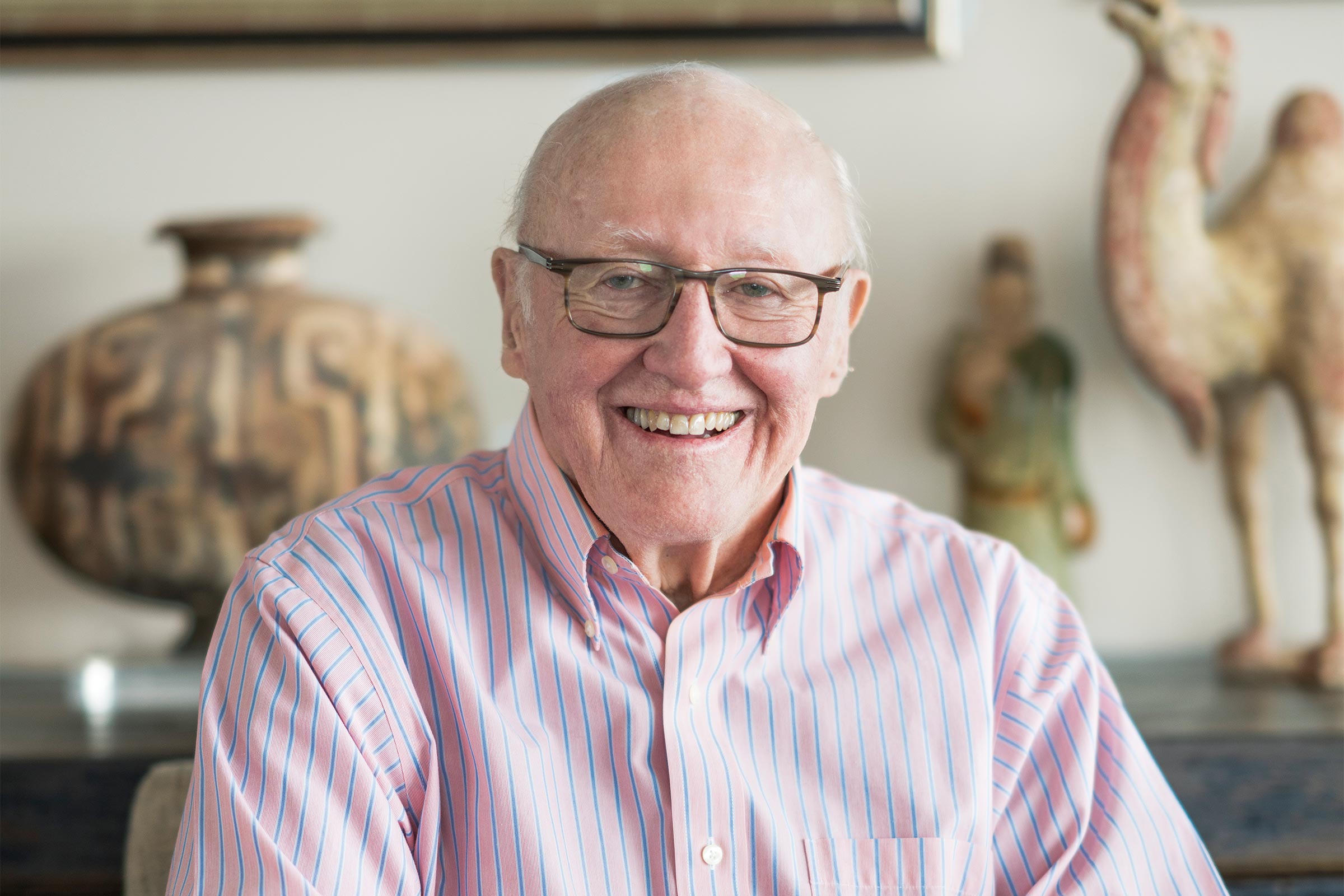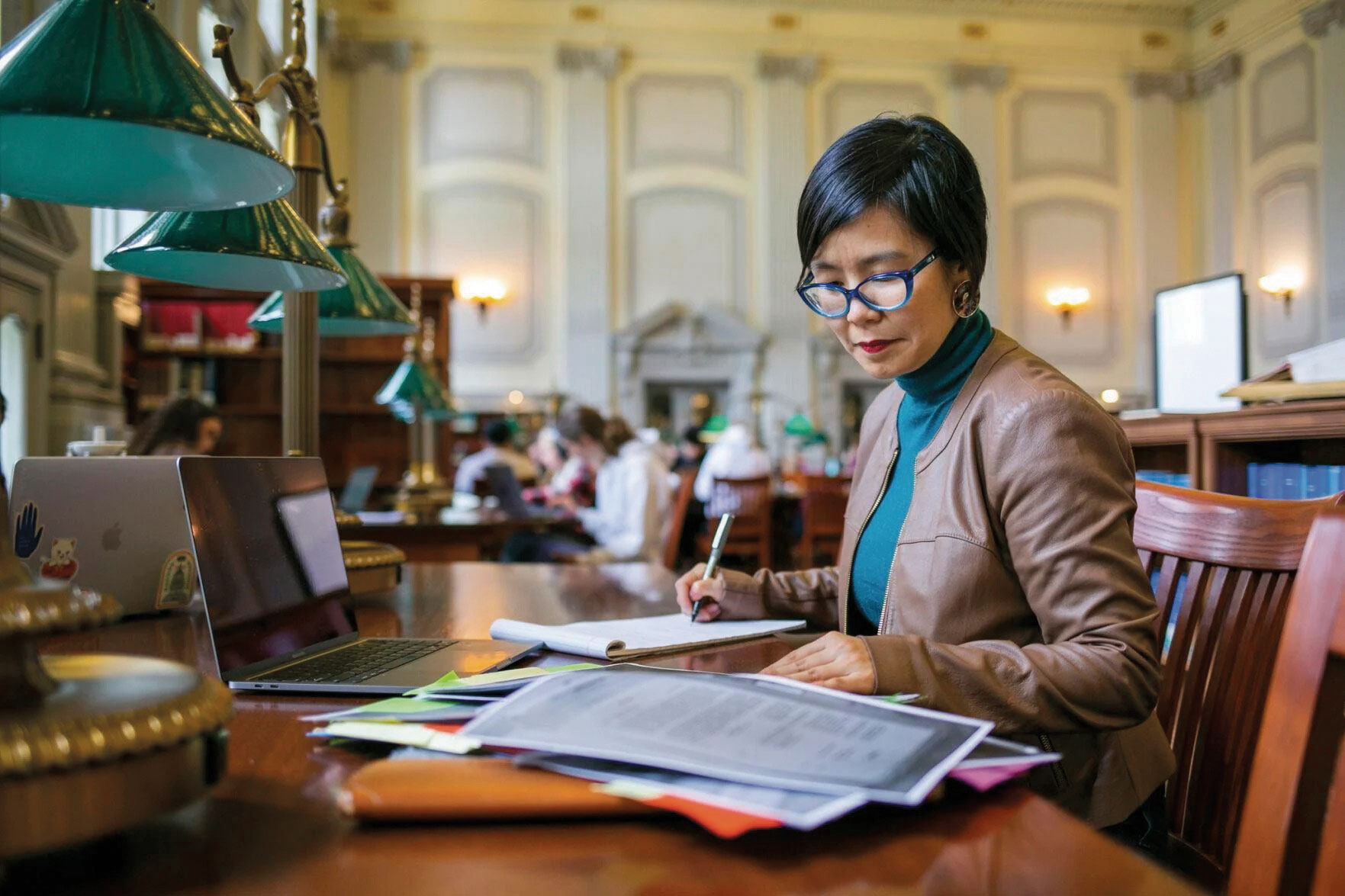
David Meissner was raised on history. As a child in suburban Milwaukee, his father read him stories about the Revolutionary War, the Civil War and other events of the past. It made an impression.
Meissner followed in his father’s and grandfather’s footsteps in attending the University of Wisconsin–Madison. He started college with the intention of becoming a doctor, but he augmented the requisite science curriculum with courses in economics and history.
Part of the pull to the history department was a professor who would capture Meissner’s attention and help shape his future.
William Appleman Williams taught U.S. foreign relations at UW from 1957 to 1968, challenging traditional thinking on American behavior overseas and critiquing the country’s actions during the Cold War.
“He really had an effect on the students,” Meissner says. “He looked at American history and said, yes, we’ve done a lot to help others, but what did we gain from it? Are we doing it for goodwill or are we doing it for ourselves?”
Meissner began writing a thesis for Williams but left it unfinished to begin medical school, briefly. “I ended up dropping out of medical school and going back to history and finishing my thesis,” he says, adding that he worked as a teaching assistant for Williams.
His mentor helped Meissner secure a Woodrow Wilson Fellowship to earn his master’s degree in American history at the University of California–Berkeley.
Meissner returned to California after being drafted into the U.S. Navy, conducting oceanographic research and, surprisingly, editing his base’s newspaper — a position he held once his commanding officer learned he had experience selling ads for the Milwaukee Journal Sentinel.
After his time in the service, Meissner returned to Milwaukee and the Journal Sentinel. He started out as a reporter and worked his way up to an editorial writer covering foreign policy, economics and national defense. The paper sent him all over the world—to Latin America, Europe and Asia—and the State Department requested that he go to Europe to lecture on U.S. economic and foreign policy before the 1980 election.
He also held professional fellowships in journalism at Stanford University and international affairs at Harvard University.
Meissner left the newspaper in 1981 to serve as executive director of the Greater Milwaukee Committee, focusing on downtown renewal. He later became a managing partner of a public relations firm before taking over the Public Policy Forum in 1995.
Throughout his career, Meissner maintained ties to UW–Madison, including serving on the board of visitors for the Department of History and the College of Letters & Science.
In 2020, he and his wife created the William Appleman Williams & David G. and Marion S. Meissner Chair in U.S. International and Diplomatic History, a position held by Monica Kim, who explores the Korean War in a spirit reminiscent of Williams’. It’s an approach Meissner believes is crucial for understanding history and America’s place in it.
“We are a world power, and it is important to know how we got there and why,” he says. “It is important for students to grasp these issues.”
A New Perspective
By examining the experiences of ordinary people caught in the machinery of war, Monica Kim creates a stark new narrative that complicates official, top-down accounts and proposes fresh ways to consider the roots of long-standing conflicts simmering around the globe.

Monica Kim became interested in analyzing the Korean conflict because her own childhood — her Korean parents immigrated to the U.S. due to the Korean War — raised questions for her.
“The war was really present in my family during my childhood,” she says. “Yet at school, growing up, it was completely absent from textbooks or discussions. I wanted to do a bottom-up history of the Korean War — not from the vantage points of heads of state and military leaders, but from those of ordinary people like soldiers or farmers, like my family members were.”
Kim examines the dynamics between U.S. empire, race and decolonization by tracking the changes in warfare over the course of the 20th century, particularly the “wars of intervention” undertaken by the U.S. during the Cold War. She joined the UW–Madison faculty as the William Appleman Williams & David G. and Marion S. Meissner Chair in U.S. International and Diplomatic History in 2020, and, in 2022, she was awarded a MacArthur Fellowship “genius grant.”
History Department Chair Anne Hansen says Kim’s research is distinctive for the depth of its originality and humanity.
“She asks new and compelling questions about subjects we think we know, enabling us to understand international events at different scales and through the lenses of new archives and previously unheard voices,” she says. “Her classes speak to exactly the kinds of questions and concerns about global historical processes and social justice that our students most want to study.”




